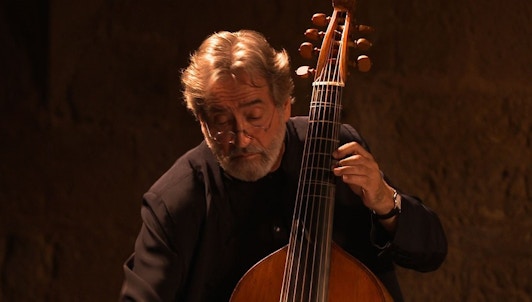In 1669, Louis XIV received Suleiman Aga, an emissary of Ottoman Sultan Mehmed IV, with the grandiose welcome befitting an ambassador. But all the dazzling ceremonies left Aga (who may have played a key role in introducing Parisian society to coffee) indifferent. The following year—whether inspired, offended, or playing on the popularity of all things Turkish—the Sun King commissioned a spectacle of “turqueries” combining theatre, dance and music. Unlike the Wagnerian Gesamtkunstwerk centuries later, Le bourgeois gentilhomme is not a weighty philosophical statement, but a comédie-ballet crafted by a legendary team—play by Molière, music by Lully—to entertain the court and the king.
The comedy draws a satirical parallel between the emerging bourgeoisie (epitomized by a snobby, naive nouveau riche by the name of Monsieur Jourdain—played by Molière himself in 1670!) and the Turkish visitor Suleiman, ignorant of the honorable protocols that left him so cold. The ambitious Jourdain despises his daughter's suitor Cléonte, a fellow bourgeois—played by Lully in 1670!—so, preying upon Jourdain’s ambitious, sycophantic nature, he successfully passes himself off as the son of a Turkish sultan to win his favor.
This delightful time capsule restages the work as it was seen and heard the day of its premiere: scored with instruments from Lully’s era, pronounced with 17th-century inflection, and lit only by (over five hundred!) candles. The amusing, lively production feels like a spontaneous and intelligent dialogue, in verse and in prose, between the forms of art it celebrates and puts on display.

Le Concert des Nations
